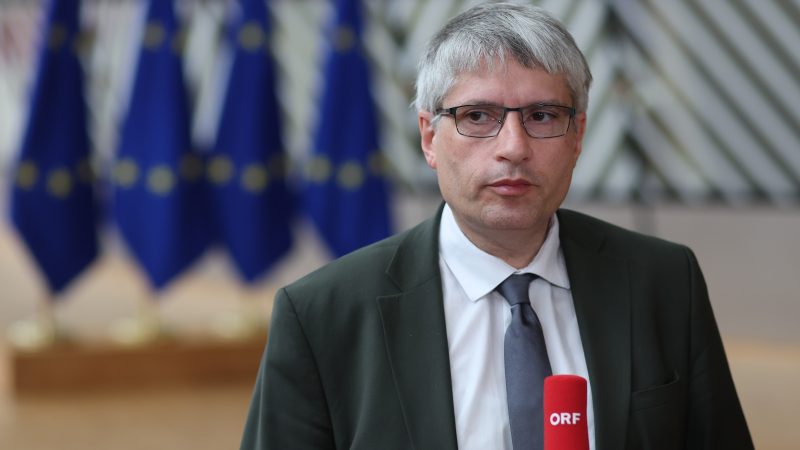Laying out key priorities for the EU’s upcoming Clean Industrial Deal, German Economy State Secretary Sven Giegold said on Monday (30 September) he wants the Commission to prioritise renewable energy, taking a tough line on nuclear power and France’s renewable targets.
Alongside a quicker roll-out of renewable energy facilitated by “further exemptions from [environmental impact] assessments,” Giegold outlined several other German priorities for the EU’s upcoming strategy.
Based on the 2030 renewable energy targets, the EU should also set up a 2040 framework, complemented by new, more ambitious targets for energy efficiency, he said.
“It should include new heating standards, a heat pump action plan and a renovation initiative,” he explained, noting a heat pump action plan was last shelved in 2023.
Hydrogen, made from renewables, should be governed by a “a pragmatic framework,” the German politician stressed, reiterating calls from his boss, Economy Minister Robert Habeck (Greens), to delay strict production rules into the late 2030s.



I wouldn’t go so far as to call it waste. It’s an inherent problem of any energy storage, and we need energy storage if we want to go all in on renewables. Storage has to pay for the energy it stores and can only sell that energy for profit if there is enough demand on the grid, so it sits idle for a lot of time, but you still have the building and maintenance costs.
My wording was poorly chosen. You are right of course. Its not a waste in that sense. But when better alternatives are available, which will hopefully soon achieve an acceptable level of efficiency, it makes no sense to build more. Apart from the space problem.
It’s only wasted money because we deliberately chose to have for profit businesses run infrastructure essential to the functioning of a modern society. In a nationalised power grid, it wouldn’t matter that a storage system has to use electricity in order to store it, because all that matters is meeting the demand and keeping the grid stable. Of course, if all that matters is profits, storage systems will only be economical to a very small subset of operators.